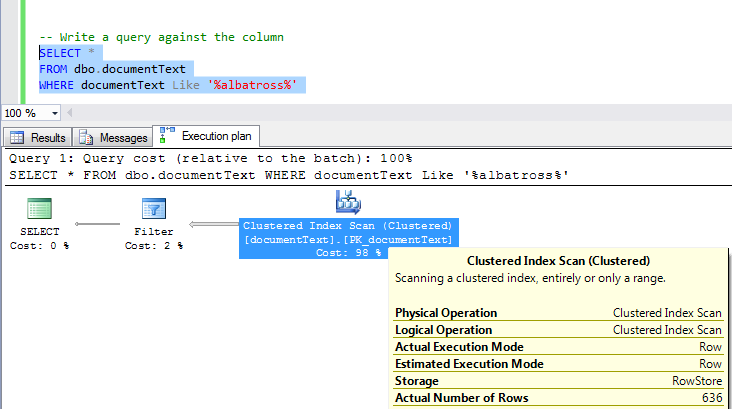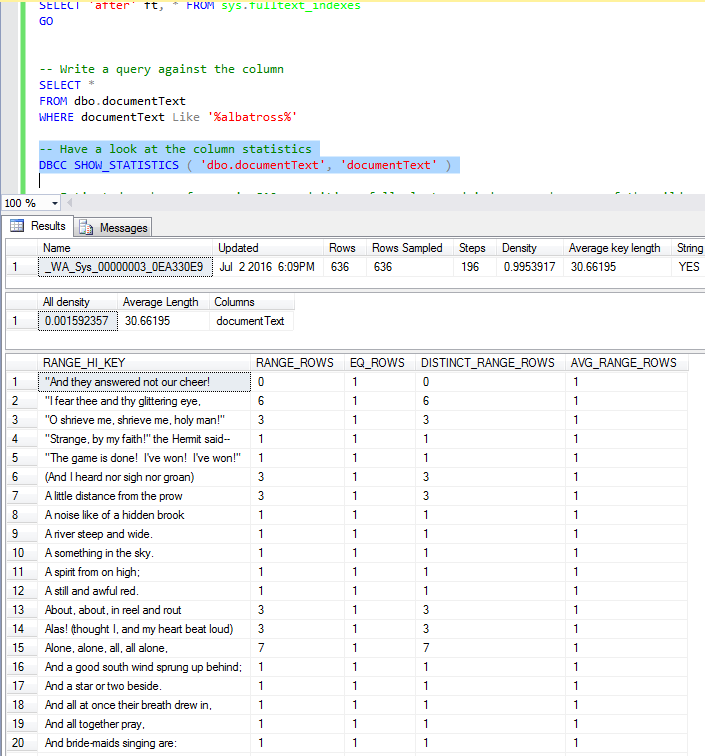Specific to Microsoft SQL Server...
If a query has a search predicate against a paragraph-style text column, it will create a system-created statistic to answer the query.
Got it.
My question is if those should be removed later as they can't be of very much help since they are based purely on the first few characters of the text string and not actually useful in the search which will be a scan against the table no matter what. Later "grooming" operations via auto-stats update, or a self-developed-stats-grooming process will encounter these and may try and update them.
To complicate it, this column is typically "wide" and can often be "deep" (say, a bajillion rows) and cause a large IO hit to accomplish even a small sample scan to update the stat.
My thinking leads me to say they should be removed. What do others say?
I am not asking if queries against these types of data are advisable. They happen. I am just doubting the usefulness of these auto-generated stats and their justification to exist unless you happen to have an text column with the first few characters actually useful in finding the rows you need - enough so that you'd consider create an index on that column - and I expect that is unusual.
What say you? Keep these albatrosses or get rid of them?


